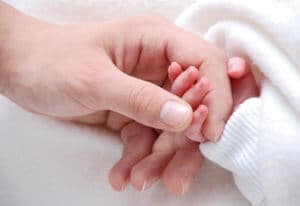The pregnancy test is negative again. “Can it be that I am infertile?”, many women are afraid to ask themselves this question. And yet it buzzes through their heads when the desire to have a child has still not been fulfilled after several months of unprotected sex. If pregnancy does not occur after a year, the woman’s infertility may actually be a reason. In this case, both sex partners should have themselves examined.
In both sexes, obesity, drugs, nicotine, alcohol, and stress can lead to infertility. However, there are gender-specific causes that cause infertility in both men and women. Here you can find the causes of infertility in men. But what factors are responsible for infertility in women?
Table of contents
Difficulties Can Occur From The Age Of 30
One reason for infertility in women may be their advanced age. Unlike men, the probability of becoming pregnant in women decreases at a young age. From the age of 30, the chance of pregnancy is only 66 percent, whereas previously it was 70 percent. At the age of 40, the figure is only 44 percent.
This is due to the fact that the number and quality of eggs decrease with age. At the same time, the probability of complications, miscarriages, chromosomal damage, and infertility increases.
Usually A Hormonal Disorder Is Responsible
If the female hormone balance does not run smoothly, this can lead to infertility. Up to about 30 to 40 percent of women in Germany have such a hormonal disorder. A problem in the hormone balance can be that the woman produces too few or no eggs, or that ovulation does not occur at all, called anovulation. Sometimes the consistency of the cervical mucus in the cervix is also responsible. This makes it difficult for the egg to penetrate. Or the cervical mucus for implantation does not build up at all.
Irregular Periods Can Be A Sign Of Infertility In Women
If the normal cycle is interrupted by a hormonal disorder, this can lead to irregularity of menstruation. Either there is very heavy long bleeding or the period occurs very weakly. Both are called hypomenorrhea. A sign of infertility in women can also be the complete absence of menstruation (amenorrhea) or bleeding in between periods (metrorrhagia). In addition, infertile women sometimes suffer from excruciatingly severe menstrual pain. Overall, however, the following applies: Only a doctor can ultimately judge whether it is really a case of infertility.
Thyroid Hormones Can Also Trigger Infertility
Estrogen, prolactin, gonadotropin – these are all sex hormones. But they are not the only ones that can be the cause of infertility in women. Often, thyroid hormones are also responsible. It is possible to have hyperthyroidism or hypothyroidism, both of which are also called hyperthyroidism. The former leads mainly to miscarriages, while the latter causes problems with ovulation. This is because the hormones prolactin and luteinizing hormone get mixed up in hypothyroidism.
Overweight And Underweight Affect Fertility
Both severe obesity and above-average underweight have an impact on fertility. Women who suffer from obesity, or severe overweight, often have higher hormone and estrogen levels. Excessive hair is indicative of high testosterone levels. Increased body hair in women following the male pattern – that is, in places like the chin or upper lip – is called hirsutism.
Diseases Cause Sterility
In addition, diseases can affect a woman’s fertility. Tumors, for example, interfere with ovulation. They cause increased secretion of prolactin in the brain. In the case of diabetes, disturbed insulin metabolism can cause hormonal disturbance or infertility.
Of course, surgery or congenital malformations can also be responsible for infertility in women.
Organic Causes Are Responsible For Hormonal Disorders
In some cases, hormonal disorders have an organic cause. Clogged, overgrown, or blocked fallopian tubes put a spoke in the wheel of women who want to have children. Organic causes are caused by inflammations, such as inflammation of the fallopian tubes, infections, such as chlamydia, ovarian cysts, or adhesions after operations. There is a risk of inflammation of the fallopian tubes when using the contraceptive “IUD”.
Endometriosis can also be a trigger for an organic cause. This is a benign disease in which the cells of the uterine lining settle outside the uterus. Here you can find more information about endometriosis.
In addition, benign tumors of the uterus, so-called fibroids, or hormone-producing tumors may be responsible.
Immune System Causes Infertility
Some women produce antibodies that block their own eggs or their partner’s sperm. The reason for this is that the immune system sees the cells as foreign. When such antibodies are developed, fertilization is no longer possible.
Genetic Defects As A Possible Reason
In other cases, genes are responsible for a woman’s infertility. For example, problems may arise during cell division. Therefore, the fertilized egg cell cannot develop and implant in the uterus. The so-called Turner syndrome is also widespread. This is when women have only one sex chromosome. This leads to infertility.
Psyche Has An Influence On Fertility
Not only do organs, hormones, and the immune system have an influence on fertility, but also the psyche of the woman plays a serious role. Stress, tension, or psychological pressure upset the female hormone balance. Sexual disorders and relationship problems also prevent smooth reproduction.
A Visit To The Gynecologist Provides Clarification
However, if you want to be sure about your fertility, you should visit a gynecologist. Within various examinations, a gynecologist can diagnose infertility in a woman. If the suspicion proves to be true, it is usually a big shock. Here you can learn how to deal with infertility.
In order to investigate fertility, an ultrasound, a gynecological examination, as well as a fallopian tube examination, a hormonal examination, and a genetic examination are usually performed. In addition, a gynecological smear may be taken or cycle monitoring may be performed.
Despite infertility, there are ways to raise your own children. Once the diagnosis has been processed, information can be obtained. A frequently chosen way is adoption. Find out if adoption is right for you and your partner.














7 thoughts on “Infertility: What Are The Causes Of Infertility In Women?”